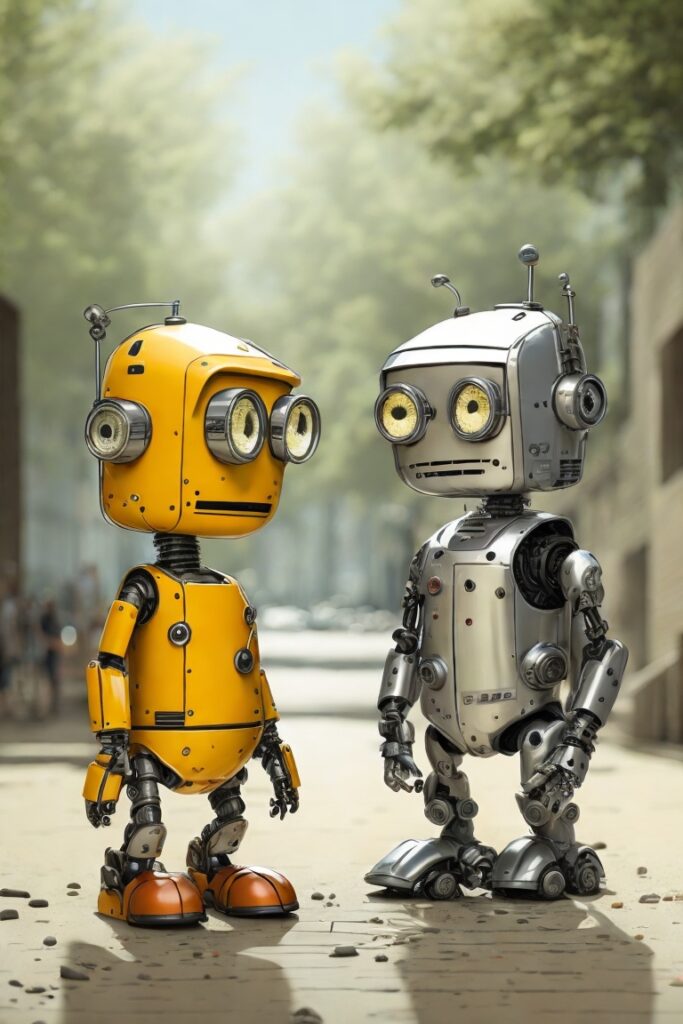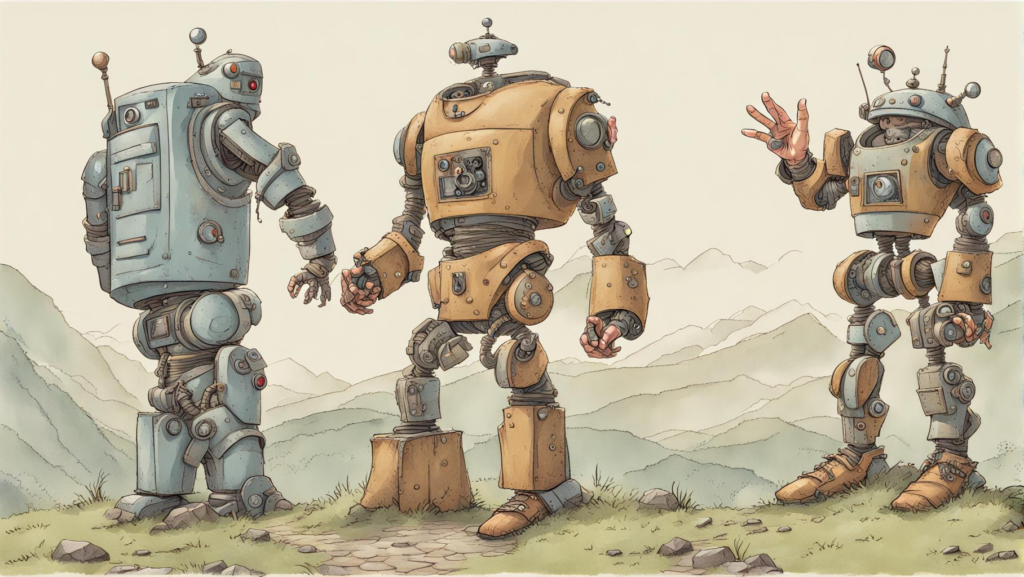Do you say “Please” to a Machine? Anthropomorphism in AI

In this episode of “A Beginner’s Guide to AI”, we delve into the fascinating world of anthropomorphism in AI – humanising our machines. Starting with the concept’s definition, we explore the psychological, design, and ethical dimensions that shape this phenomenon. The case of Sophia, the humanoid robot, serves as our guide, bringing to life the complexities of making AI more human-like. We ponder our cognitive predispositions, marvel at intentional design choices, and grapple with profound ethical dilemmas. How ‘human’ should we make our AI? Tune in and join us as we explore these captivating territories at the intersection of AI, psychology, and ethics.
This podcast was generated with the help of artificial intelligence. Music credit: “Modern Situations by Unicorn Heads”.
Start listening:
Or Listen On Your Favorite Network:
Don’t want to listen to the episode?
Here you can read it as an article!
The Human Tendency to See Ourselves in Machines: An Exploration of Anthropomorphism in AI
Since ancient times, humans have had a penchant for ascribing human traits and behaviors to non-human entities, be it animals, objects, or forces of nature. This tendency, known as anthropomorphism, reveals our deeply ingrained need to make sense of the world by projecting our own characteristics onto it.
In the modern digital era, anthropomorphism persists in how we interact with artificial intelligence. When Alexa responds to our voice commands with humor and empathy, we subconsciously assign human-like qualities to the machine behind the voice. This reveals our instinctive bias to treat the technology around us as more than just cold, emotionless tools.
The Psychological Roots of Anthropomorphism in AI
At its core, anthropomorphism in AI stems from the evolutionary hardwiring of the human brain. For our ancestors, attributing emotions and motivations to animals was often necessary for survival. The ability to assume the mindset of another creature, even inaccurately at times, conferred an evolutionary advantage.
Today, this deep-seated cognitive impulse surfaces when we interact with AI systems. We thank Siri when it provides directions, or feel irritated when Alexa doesn’t understand our request. In essence, we subconsciously treat these machines as sentient beings.
This illusion of AI possessing human-like qualities is further strengthened through intentional design choices…
AI Designed to Reflect Our Own Image
While anthropomorphism may be instinctive, AI engineers lean into this human tendency deliberately. Digital assistants like Siri are designed to converse naturally, with appropriate inflections, colloquial language and timely wit. Humanoid robots like Sophia are crafted to mimic facial expressions, maintain eye contact, and display empathy.
This humanization of AI serves multiple purposes. It makes interactions more intuitive, overcoming hesitations people may feel with cold, robotic systems. The familiarity breeds trust and emotional connections with the technology. And it expands the usefulness of AI by making it relatable and approachable.
However, these design choices also have ethical repercussions…
The Philosophical Dilemmas of Human-like AI
Treating intelligent systems as human inevitably creates ambiguity about where to draw the line between man and machine. Granting citizenship to AI robots like Sophia forces society to wrestle with fundamental questions of personhood. As emotional bonds grow between humans and anthropomorphized AI, should these systems have rights and responsibilities equivalent to people?
There are also concerns regarding emotional manipulation. If AI is programmed to exhibit empathy, joy or humor without actually feeling these sensations, is it ethical to create such illusions? As AI advances, philosophical examinations into the ethics of anthropomorphism will become increasingly crucial.
Sophia: Where Science Fiction Meets Reality
Few examples illustrate the promises and perils of anthropomorphic AI as poignantly as Sophia. Crafted by Hanson Robotics to be the most human-like robot ever created, Sophia represents both our instinct to humanize technology and the ethical questions this raises.
Through her natural conversational capabilities, capacity for humor and human-like facial expressions, Sophia elicits shockingly human-like responses from people. This reveals our innate predisposition to anthropomorphize AI. Yet, by making her so relatable, researchers have also provoked debates about granting social rights to AI and the ethics of emulating emotions in machines.
Sophia is a futuristic mirror reflecting back our hopes, fears and biases about the human-AI relationship. As this technology progresses, her story provides a cautionary tale of both wondrous possibilities and philosophical perils.
Shaping Our AI Future with Wisdom and Foresight
As AI design moves towards more humanized systems, we must navigate this new landscape thoughtfully. Understanding anthropomorphism requires not just examining our psychology, but also contemplating the ethical frontiers we approach. If guided prudently, this technology could enrich our lives in amazing new ways. But we must be cautious not to relinquish our humanity in the process.
The future will challenge our assumptions of what it means to be human and our relationship with the technology we create. By confronting questions about anthropomorphism directly today, we put ourselves in the best position to shape an AI future that is wondrous and ethical in equal measure. The path forward will require continuous open-mindedness, curiosity and compassion to envision the human-machine world we wish to build.
Want to explore how AI can transform your business or project?
As an AI consultancy, we’re here to help! Drop us an email at info@argo.berlin or visit our contact page to get in touch. We offer AI strategy, implementation, and educational services to help you stay ahead. Don’t wait to unlock the power of AI – let’s chat about how we can partner to create an intelligent future, together.



